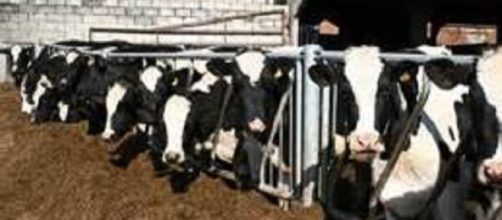The current industry trend for the price of your pint of milk at the supermarket to fall, as the rival stores engage in fearsome price competition on the "basics" as they attempt to increase their market percentage, may be marvellous news to most people but it does not seem to be causing much happiness for those engaged in the dairy farming business.
Recent figures suggest that as many as 10,000 dairy farmers across Wales and England may have been forced to leave the industry since 2002, for no other reason than it was just not financially viable for them to continue operating as they have been.
That represents a drop in the overall numbers engaged in the industry by around fifty percent. Even more concerning perhaps for the chances of a shortage of dairy farmers in future becoming a real possibility is the startling disclosure that this trend shows no signs of abating, with around sixty farmers discontinuing milk production in December alone. It is further predicted by the National Farmers Union (NFU) that within another ten years there may be as few as 5,000 left to meet the demand for such products.
They have placed the blame for this mass exodus firmly at the door of the supermarkets, as they have engaged in a form of oligopolistic price war that has forced the price of milk down between them to attract more sales in their stores, which has caused them in turn to offer less to the dairy farmers for the basic product they receive from them to sell on.
Indeed, milk consumers may welcome the news that milk prices are now at their lowest levels since 2007, but placed alongside the costs for dairy farmers having increased in the same period by 36%, then the statistics make grim reading overall for the industry. Their potential profit margins have been effectively squeezed to such a degree that they can barely cover their costs and are lurching precariously close to making losses in many cases going forward, unless circumstances change.
The dairy farmer's single largest cost that they have to cover is that for animal feed, which alone has seen a rise in its price of over 50% in the last seven years. That reflects a basic supply versus demand tenet in the establishment of the price that is charged, that as demand rises with a relatively fixed supply then the commodity becomes more valuable and the price that can be charged is likely to increase.
Hence, due to an increase in the demand globally for a variety of products that required the constituents of animal feed, the market price of such has increased.
It seems that the news is getting no better for dairy farmers, with the recent disclosure by Glasgow-based co-operative First Milk that it was to defer future payments to its dairy farmers by two weeks. That may assist its own cash flow problems, but does not seem to offer much joy to its members.
Some supermarkets seem to be reacting in a slightly less harsh manner, with the news from Asda that despite its dropping of the price of milk in its stores, it has pledged to continue paying the same rate to farmers. However, it may be too little too late without a price rise soon it seems.
